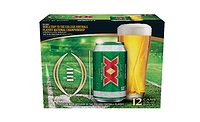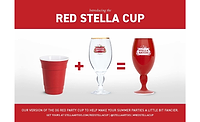2019 Beer Report: Imports continue to gain in US beer market
Mexican import beers post strong gains in 2018

Because of this splintering, members of the beer community are looking to tackle these challenges through a group effort. At its 81st Convention, the National Beer Wholesalers Association unveiled the Beer Growth Initiative (BGI), an industry-wide effort to improve the category health of the beer industry.
In partnership with the Brewers Association and the Beer Institute, the effort is designed to identify opportunities to grow the beer category while bringing together large brewers, small brewers, distributors and industry experts to address beer’s steady decline during the past few years, the association says.
This initiative comes as the off-premise U.S. beer market decreased 0.3 percent in terms of volume sales in 2018 while being up 1.8 percent in dollar sales for that same time period, says Patrick Livingston, director of client insights of beer, wine and spirits for Chicago-based Information Resources Inc. (IRI), citing the market research firm’s sales data across total multi-outlets including the convenience channel sector.
Analyzing this performance, Livingston notes that a number of factors are contributing to the beer market’s relatively flat performance in 2018. “There are fewer households that purchased the beer category in 2018 compared to 2017, so there’s a decrease in household penetration — just about four-tenths of a percent, which is small,” he says. “However, there is a decrease in penetration.”
In recent years, the imported beer market has outpaced the overall beer market in dollar and case sales. Based on recent insights, the segment’s performance continued throughout 2018 and experts forecast a positive impact on the market in 2019.
“Our data suggests imported beer is growing quicker than the domestic beer category and this trend is expected to continue over the next five years, especially [because] Mexican brands are performing very strongly,” says Chris Lombardo, lead industry analyst for Los Angeles-based IBISWorld.
Patrick Livingston, director of client insights of beer, wine and spirits for Chicago-based Information Resources Inc. (IRI), highlights how the popularity of import beer in the United States helped it post strong gains last year.
“The import growth is largely driven by Mexican imports,” he says. “Mexican imports make up 72.3 percent of all import sales, and imports themselves are a very important segment. They make up a 20 share of the beer category based on dollars and imports are up 1.1 share point in 2018. Actually, imports was the largest gaining segment in 2018, so it’s very much a growing segment and very important.”
For the 52 weeks ending Dec. 30, 2018, import beer dollar sales were up 7.4 percent while case sales increased 5.2 percent in total U.S. multi-outlets, including convenience stores, based on IRI data.
(Brand family)
| DOLLAR SALES | % CHANGE VS. PRIOR YEAR | CASE SALES | % CHANGE VS. PRIOR YEAR | |
| Corona | $2,370,454,072 | 11.6 | 72,203,831 | 9.5 |
| Modelo | $1,974,795,285 | 17.9 | 63,641,365 | 15.4 |
| Heineken | $794,783,627 | -1.5 | 24,557,531 | -3.1 |
| Dos Equis XX | $382,850,606 | -1.8 | 11,947,589 | -2.5 |
| Stella Artois | $367,756,681 | -0.8 | 10,267,589 | -0.9 |
| Tecate | $202,315,496 | -11.4 | 9,913,670 | -11.7 |
| Labatt | $152,248,823 | -6.8 | 8,135,666 | -7.3 |
| Guinness | $144,027,893 | 0.9 | 3,876,073 | -1.3 |
| Pacifico | $125,180,970 | 8.4 | 3,969,427 | 6.3 |
| Foster's | $75,048,784 | 0.7 | 2,860,860 | -0.6 |
| Total sales* | $7,059,725,796 | 7.4 | 226,620,942 | 5.2 |
*Includes brands not listed.
Source: Information Resources Inc. (IRI), Chicago. Total U.S. supermarkets, drug stores, gas and convenience stores, mass merchandisers, military commissaries, and select club and dollar retail chains for the 52 weeks ending Dec. 30, 2018.
Unlike other beverage segments, import beer has not derived its growth from new brands, but instead from the prominence of established Mexican beer brands, Livingston adds.
Brian Sudano, managing partner for New York-based Beverage Marketing Corporation (BMC), also details the importance that Mexican imports have had on the beer segment.
“Mexican imports have been outpacing market,” he says. “We expect this trend to continue as brands have hit significant scale which commands more shelf space. Recent innovation and market activation has also drove incremental volume and driven sales.”
According to IBISWorld’s Lombardo, Mexican beer imports account for nearly two-thirds of the U.S. import beer market. “Currently, Mexico accounts for the highest share of imports in the breweries industry, accounting for more than 65 percent of industry imports,” he says. “This is partially due to its proximity to the United States and the North American Free Trade Agreement, which makes importing from the country relatively easier than other destinations.”
In 2018, Corona, a brand of Victor, N.Y.-based Constellation Brands Inc., expanded consumers Mexican beer options with the national release of Corona Premier, the first innovation for the brand in 29 years.
“Corona is a brand that consumers have loved for more than three decades in America, and we’re excited to add a new brand to our family,” said John Alvarado, vice president of marketing for Corona, in a statement at the time of the roll out. “Corona Premier offers the light beer experience men 35 plus have been waiting for. These guys have upgraded just about every brand in their life since college – now it’s time to upgrade their beer, too.”
The light beer was designed for the mature, sophisticated beer consumer looking for better-for-you light options, the company says.
However, research shows that light options is not the only product attribute that consumers want from Mexican beers.
Last fall, Dos Equis, a brand of White Plains, N.Y.-based HEINEKEN USA, announced the brand was debuting Dos Equis Mexican Pale Ale (MPA), a traditional Pale Ale with a Mexican twist that is fuller bodied and delivers a subtle kick of heat. The sessionable Mexican Pale Ale was available on draught nationally at sports bars and at Buffalo Wild Wings (BWW) as part of the restaurant’s Brew Series starting in September through early November. Following its successful run on-premise, HEINEKEN USA announced that MPA now is available off-premise in Texas with plans to expand to other Sun Belt states.
HEINEKEN USA also recently launched Tecate Titanium, a higher alcohol-by-volume (ABV) spinoff from its Mexican import Tecate brand. Tecate Titanium boasts a 7.5 percent ABV content packaged in a 24-ounce can.
When looking at country of origin, IRI’s Livingston highlights that Mexican imports were up 2.8 percent in dollar sales, but all others are declining.
“Among imports, the only country of origin that is growing is the Mexican imports,” he says. “I find that beers from Holland, Belgium, Canada, U.K., Ireland, Germany, Australia, Asia, Latin America, which are the top import sub-segments, are all declining to some degree in 2018.” BI
Looking for a reprint of this article?
From high-res PDFs to custom plaques, order your copy today!






